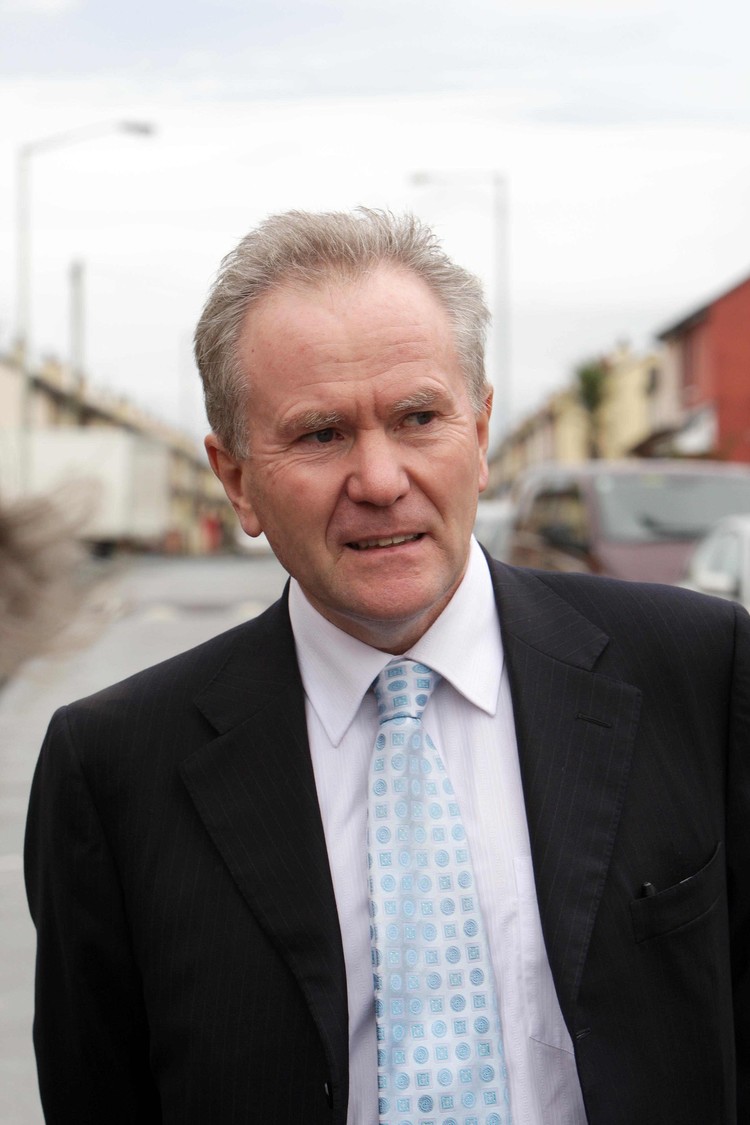By Niall McCracken
NORTHERN Ireland’s most senior coroner was today himself in the witness box – and was told that hospital management had “controlled the information” that reached him about the deaths of children in their care.
In a highly unusual turn of events, a member of the judiciary – Northern Ireland’s Chief Coroner John Leckey – gave evidence as the inquiry into deaths caused by excess intravenous fluid continued to explore how the incidents had been handled and how lines of accountability had functioned.
Inquiry chairman Mr Justice O’Hara said there was evidence of health trusts here deciding that certain information was “inconvenient” and a decision being made to withhold it from Mr Leckey’s office.
Mr John Leckey acknowledged that this was “disappointing”.
Justice O’Hara said that while the inquiry was examining the deaths of five children, the truth was that “nobody knows if there are more hyponatraemia-related deaths”.
For more background information on the issues being examined by the Hyponatraemia Inquiry please click here.
Questioning Mr Leckey on the information he receives for an inquest, Mr Justice O’Hara said:
The chairman: There are a number of examples in this inquiry of statements being changed at the instigation of managers within hospitals in order to control the information that reached you. I presume you find that disappointing?
Mr Leckey: Yes
The coroner told the inquiry that he attached “great weight” to the fact that clinicians gave evidence to him under oath. The chairman commented on this point:
The chairman: The concern that I have Sir, is that we have doctors who have expressed very clear views to the inquiry about what [went] wrong in these children’s cases and these are views that are not expressed to you at inquest.
Senior counsel to the Inquiry, Moyne Anyadike-Danes QC, highlighted the fact that in the case of nine-year-old Raychel Ferguson, the Altnagelvin Trust had commissioned an expert report by an external paediatric consultant from Dublin that did not reach the coroner’s office:
Ms Anyadike-Danes QC: You would want the trust to find a way of communication that information to you?
Mr Leckey: Certainly I would.
The chairman: It’s not a question of the trust finding a way to communicate information. It’s the trust handing over their report. This is one public body, with one judicial officer investigating the cause of a child’s death and a public body obtaining an expert’s report and then deciding because it’s inconvenient to them, they will withhold it from the coroner.
Ms Anyadike-Danes QC: Exactly
The coroner said it was the usual practice that he would receive expert reports from trusts on the understanding of “full disclosure”.
Mr Leckey told the inquiry that in recent years it was his experience that clinicians were more open with his office and that families are more likely to question information after a relative’s death.
The chairman said that it was his concern that the bar had been set so low that “you couldn’t fail to make progress.”
Mr Leckey said it was his belief that if the children’s death were to have happened today “things would have happened differently.”
Giving evidence, Mr Leckey said he was “extremely disappointed and very upset” that a letter sent to him by a senior clinician outlining best practice guidelines in relation to hyponatraemia was not widely disseminated, despite assurances made to him that this was the case.
The letter was sent to the coroner by Dr Robert Taylor, consultant paediatrician within the children’s hospital, following the inquest of four-year-old Adam Strain in 1995. It said: “The now-known complications of hyponatraemia in some of these cases will continue to be assessed in each patient and all anaesthetic staff will be made aware of these particular phenomena and advised to act appropriately.”
Ms Anyadike-Danes told Mr Leckey that the inquiry had already heard in evidence that the senior paediatric lead , the medical director and the CEO of the children’s hospital “ knew nothing about the statement.”
Questioning Mr Leckey on this point Ms Anyadike-Danes QC said:
Ms Anyadike-Danes QC : So none of the people who you would have thought might be in authority to change practice in the children’s hospital, in their evidence to the inquiry, say they knew anything about it.
Mr Leckey: I read that in some of the material from the inquiry and I was extremely disappointed and also very upset to learn that.
Mr Leckey also said that looking back, Adam’s inquest was one of the most important inquests he ever held. Picking up on this point the chairman said:
The chairman: Do I take it from that Mr Leckey that makes you even more disappointed? That while you learned so much and regarded it as important, the learning was spread out so thinly after the inquest.
Mr Leckey: Very disappointed.
The inquiry continues.
© The Detail 2013
 By
By
